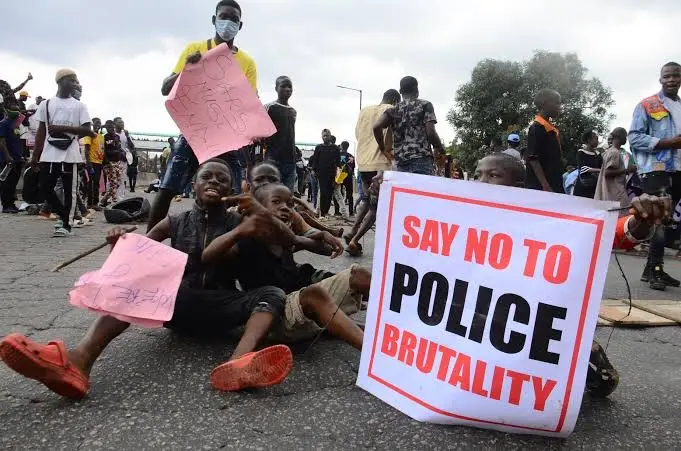On the day the world was celebrating World Press Freedom Day, the Nigerian police detained Daniel Ojukwu, a journalist with Foundation for Investigative Journalism, calling out against the force’s brutality in Ikeja, Lagos State.
One of the police officers, dressed without any tag for official identification, was busy punching a driver when Daniel cautioned them before his arrest. Believing that he would get justice, he called Benjamin Hundeyin, the mouthpiece of the police for Lagos State but he got no help.
Daniel later had to bail himself in a bid to recover his phone and identity card which had been earlier seized before driving him to their station. He is not only the journalist that has been victim of police brutality, many others have faced similar threats in the course of doing their constitutional duty.
Over the years, over 167 countries have been found guilty of breaching their citizens’ human rights, notwithstanding constitutional safeguards. Nigeria, for example, dedicates chapter four of her 1999 Constitution to protect and guarantee human rights. Not only that, but global rules such as the Universal Declaration of Human Rights (1948) are designed to provide a safe haven for liberty around the world.
The United Nation Children’s Fund (UNICEF) defines human rights as “standards that recognize and protect the dignity of all human beings. Human rights govern how individual human beings live in society and with each other, as well as their relationship with the State and the obligations that the State has towards them.”
“Like other countries, Nigeria faces myriad human rights challenges. As Nigeria strives towards a nation that acknowledges the rights of all human beings with strong and effective national protection systems, UN instruments and the mechanisms they have established as well as the Constitution of the Federal Republic of Nigeria, 1999 sets the agenda for much of the work,” said Edward Kallon, the United Nations Resident and Humanitarian Coordinator at a programme in Abuja, Nigeria’s capital.
In its ranking of the safety of journalists, Reporters Without Borders scored Nigeria 129 out of 180. ”Nigeria is one of West Africa’s most dangerous and challenging countries for journalists, who are frequently observed, attacked, unfairly detained, and even assassinated,” lamented the RSF.
While calling on on the federal government to stop the attack against journalists and to prosecute the offender, Media Right Agenda (MRA), a civil society group working towards the protection of press workers in the country, claimed that its records revealed that the officers of the Nigerian Police force are the major perpetrators of these attacks while adding that it has documented about 15 cases of attacks against the journalists in which they spearheaded.
Gimba Kakanda, a columnist for the Daily Trust newspaper, was attacked by police personnel on October 11 while attempting to pick up his car at the Ministry of Women Affairs and Social Development in Abuja. After identifying himself as a journalist and showing them his press identity, the cops hit him and his companion with sticks, destroying his phone in the process, and transported him and his friend to a neighboring police headquarters. This is a scenario of an average journalist encounter with the Nigerian armed forces.
A study by the Research Gate, an academic-research house, concludes that the human rights violations by the Nigerian police have harmed the reputation of the Nigerian police in the international community. For example, the United States government has refused to sell armaments to Nigeria on multiple times, alleging human rights breaches by security services whose mission it is to safeguard the lives and property of the people, not to use such weapons against them.
In addition to this, it says that the Nigerian police force has consistently been recognized as one of the worst when compared to top global practices in policing and human rights respect. The Nigerian Police Commission’s unwillingness to effectively discipline officers who violate suspects’ rights has led some of those officers to believe they may act with impunity.
When journalists are attacked by the forces that are supposed to serve as a shield for them, they would lack trust in Nigeria’s justice system and the effect of this is on the democratic systems of the country which will not thrive because they would be sceptical to perform their roles. Hence, I am using this piece as another medium to call for a stop on the attacks on journalists.














